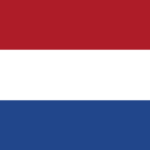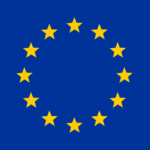PESTEL analysis of the United Arab Emirates (UAE)
This detailed PESTEL analysis of the United Arab Emirates (UAE) aims to explore some of the political, economic, social, technological, environmental, and legal factors affecting the United Arab Emirates today. The United Arab Emirates, often simply called Emirates, is a powerful country in the Middle East. It has been making tremendous progress in many fields since its full independence in 1971.
Political factors affecting the United Arab Emirates (UAE)
The United Arab Emirates is a constitutional federation. It consists of seven emirates i.e. Abu Dhabi, Ajman, Dubai, Fujairah, Ras Al Khaimah, Sharjah, and Umm Al Quwain. Each emirate is governed by a ruler, while the Federal Supreme Council, highest constitutional authority of the Emirates, consists of all the seven rulers. Abu Dhabi is the capital of the UAE.
The UAE is considered a big power in the Middle East and has considerable influences at global stage as well. It maintains very good diplomatic and trading relations with the United States, Saudi Arabia, India, China, and many other countries in the region and beyond. However, its participation in the Yemen war has strained its relations with Iran, a major regional power. It was also a key participant in the blockade of Qatar beginning in 2017. It is worth noting that the UAE has recently taken initiatives to de-escalate the critical situations in the Middle East, particularly its tensions with Iran.
Many analysists argue that the political freedom in the UAE is very limited. Though limited elections are held for federal advisory bodies, political parties are banned, and all electoral candidates must run as independents. The civil liberties for both nationals and foreigners are restricted as well. The ultimate power rests with the seven hereditary rulers.
Economic factors affecting the United Arab Emirates (UAE)
Economic environment is an important area of assessment in the PESTEL analysis of the United Arab Emirates (UAE). The UAE is a member of a number of international economic and political forums e.g. the UN, World Bank, IMF, Arab League, OIC, OPEC, and GCC. It is the 29th largest economy in the world. Its GDP in 2022 is expected to be $425 billion (Trading Economics, 2022).
Crude petroleum, refined petroleum, gold, diamonds, and petroleum gas are the top exports of the UAE. Its top export destinations are India, Japan, China, Oman, and Switzerland. Gold, jewellery, cars, diamonds, and refined petroleum are the top imports which the country imports mostly from China, India, Germany, the United Kingdom, and Turkey (OEC, 2022).
The UAE is one of the richest countries in the world in terms of per capita income. It has made remarkable economic progress over the years and the factors that have mostly contributed to it are abundant natural resources, economic diversification, innovation, and inflow of foreign direct investment (FDI). It has developed a variety of industries such as tourism and real estate development that contribute significantly to its economy and help it maintain its status as one of the richest countries in the world. However, its over reliance on the petroleum sector is a weakness.
Generally, companies and individuals in the UAE do not pay any taxes on income or wealth. However, major oil and gas companies, and subsidiaries of foreign banks are liable to the corporation tax at a maximum rate of up to 55%.
Social factors affecting the United Arab Emirates (UAE)
The UAE is one of the most liberal countries in the Gulf, though it is conservative traditionally. Particularly, Dubai is a very dynamic emirate and a flourishing international business centre. It is very modern and well-integrated with the rest of the advanced world. It grew and evolved at a rapid speed in the last two decades.
The total population of the UAE is approximately 10 million (Worldometers, 2022). Emirati nationals only constitute 20% of the total population, making the country home to one of the world’s highest percentage of immigrants. Most of the immigrants living and working in the UAE are from India, Pakistan, Bangladesh, the UK, the USA, Iran, Canada, China, Philippines, South Africa, and Nepal. In fact, according to some sources, over 200 nationalities live in the UAE making it one of the leading cosmopolitan hubs in the world.
The life expectancy for men is 76 years and 78 years for women in the Arab Emirates. Arabic is the major language, while Islam is the major religion in the country (BBC, 2020). The UAE is one of the richest countries in the world in terms of GDP per capita. Emiratis are very social people, and families love to live together. They highly advocate and practice religious, tribal, and traditional ties and values of cooperation and care.
The UAE’s population is growing rapidly and therefore, there is a huge demand for higher education. In order to meet this demand, universities and higher educational institutes have been built across the country, which has created opportunities for new professionals who may like to work in the country. The emergence of all these new professionals creates a market for skills that can be used by other countries in the region as well.
However, there are some social challenges facing the United Arab Emirates today. For instance, wealth gap is a problem as the richest 1% of the population own over half of the UAE’s wealth according to many sources. Other social challenges to note are obesity, drug abuse, high cost of living particularly in Dubai and Abu Dhabi, racial discrimination, and high rate of divorce.
Technological factors affecting the United Arab Emirates (UAE)
Technological environment is the next element to discuss in the PESTEL analysis of the United Arab Emirates (EU). The Emiratis are very keen on using social media. They, on average, spend 2.56 hours on social media daily. Approximately 82% of the UAE’s population has profiles on Facebook while YouTube’s penetration also stands at 82%. Other notable social media in use are Twitter, LinkedIn, Pinterest, Instagram, and Tumblr.
The UAE introduced the eDirham card in 2001 to facilitate payment for government and non-government services. The government has invested heavily in space science, life science, nuclear science, and ICT over the years. In fact, the UAE is currently the most attractive ICT market in the Middle East.
UAE is home to a number of large companies and organizations with advanced technology. This has helped to create a more technical workforce that can be used in various industries to drive economic growth. The UAE has a competitive market for the Information Communication Technology (ICT) industry. The government has taken several initiatives to develop a competitive knowledge economy (ITA, 2022).
Environmental factors affecting the United Arab Emirates (UAE)
The UAE is one of the most visited countries in the world. Perfect balance between traditional religious culture and modernity, luxurious hotels, stunning shopping malls, skyscrapers, crystal clear beaches, historical ruins, indoor theme parks, and versatile cuisine are some of the factors that attract millions of tourists every year. It is also worth noting that the UAE is particularly safe for solo female travellers, especially with hotels such as Dubai’s Jumeirah Emirates Towers hotel and Dukes Dubai dedicating female-only floors with an all-female staff.
However, the country has developed so rapidly in such a short time that it is now faced with some environmental challenges. Constant noise of construction, invasive species, carbon footprints, limited water sources, overfishing, waste generation, air pollution, land degradation, and desertification are having immense impact on the environment. Therefore, the country is investing in renewable energy sources such as solar power and wind energy and recently launched ‘Energy Strategy 2050’.
Legal factors affecting the United Arab Emirates (UAE)
Legal environment is the last element to discuss in the PESTEL analysis of the United Arab Emirates (UAE). Due to the limited scope, the article offers basic discussion on the UAE’s legal environment. The UAE is a federal constitutional monarchy. Its Labour Law applies to all staff and employees regardless of their nationalities. The maximum working hours for an adult employee is eight hours a day (48 hours a week). However, it can slightly vary depending on the types of business. As mentioned above, the UAE is one of the safest countries in the world with low crime rates. It shows that rules and regulations are applied very strictly in the country.
We hope the article ‘PESTEL analysis of the United Arab Emirates (UAE)’ has been useful. If you have liked it, please share it with others to support our educational work.
You may also like reading:
SWOT analysis of Emirates Airline
Advantages and disadvantages of a private limited company
Last update: 29 January 2022
References:
BBC (2020) United Arab Emirates country profile, available at: https://www.bbc.co.uk/news/world-middle-east-14703998 (accessed 29 January 2022)
ITA (2022) Digital and Information Communication Technology (ICT), available at: https://www.trade.gov/country-commercial-guides/united-arab-emirates-digital-and-information-communication-technology-ict (accessed 29 January 2022)
OEC (2022) United Arab Emirates, available at: https://oec.world/en/profile/country/are/ ( accessed 29 January 2022)
Trading Economics (2022) United Arab Emirates GDP, available at: https://tradingeconomics.com/united-arab-emirates/gdp (accessed 29 January 2022)
Worldometers (2022) UAE Population, available at: https://worldpopulationreview.com/countries/united-arab-emirates-population (accessed 29 January 2022)
Author: M Rahman
M Rahman writes extensively online and offline with an emphasis on business management, marketing, and tourism. He is a lecturer in Management and Marketing. He holds an MSc in Tourism & Hospitality from the University of Sunderland. Also, graduated from Leeds Metropolitan University with a BA in Business & Management Studies and completed a DTLLS (Diploma in Teaching in the Life-Long Learning Sector) from London South Bank University.


